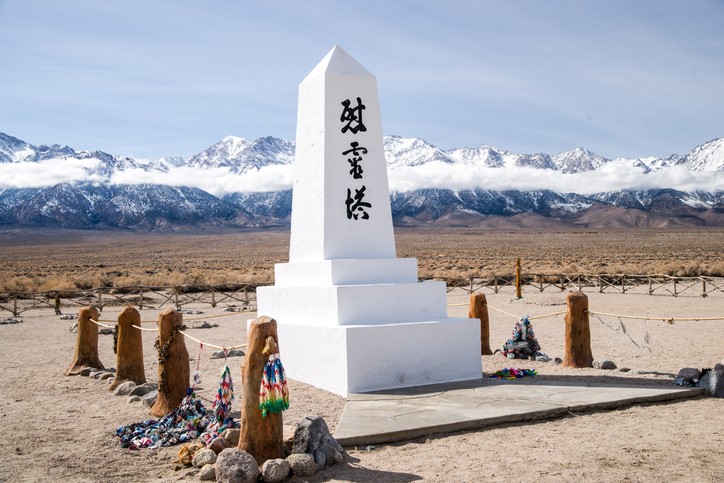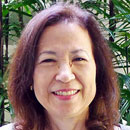May 25, 2023
The Korematsu Legacy
Vice President of Administration and General Counsel at Kineticor, Inc.

This piece is part of a blog series highlighting key legal issues facing Asian American and Pacific Islander communities.
In 1942 Fred Korematsu of San Leandro, California, Minoru Yasui of Portland, Oregon, and Gordon Hirabayashi of Seattle, Washington, defied President Franklin Roosevelt’s Executive Order 9066, under which authority nearly 120,000 Japanese Americans were removed from the West Coast and incarcerated in desolate areas of the country. The three men maintained that it was unconstitutional to incarcerate Japanese Americans solely on the basis of their ancestry. But the U.S. Supreme Court allowed the government’s actions to stand and affirmed the men’s convictions in decisions issued in 1943 for Yasui and Hirabayashi and in 1944 for Korematsu.
The Korematsu decision was justifiably criticized for rubber-stamping the mass removal of an entire racial group on the basis of the government’s facile claim that it was a “military necessity.” In the dissenting words of Justice Robert Jackson, the Court’s decision “lies about like a loaded weapon ready for the hand of any authority that can bring forward a plausible claim of an urgent need.” Justice Jackson’s warning was indeed prophetic. After the 9/11 attacks in 2001, hundreds of Arabs, Muslims, and South Asians were detained and subjected to heightened government surveillance. A conservative author wrote a book calling the Japanese American incarceration an appropriate precedent for profiling Muslims.
The convictions of Korematsu, Yasui, and Hirabayashi remained on their records for more than 40 years. But in 1982, researcher Aiko Herzig-Yoshinaga and Professor Peter Irons discovered documents proving that the government lied to the Supreme Court when it claimed that “military necessity” justified rounding up Japanese Americans on the West Coast.
This stunning new evidence led volunteer attorneys in San Francisco, Portland, and Seattle to form legal teams to challenge the 40-year-old convictions. On January 19, 1983, the Korematsu team, which I had joined, filed a petition for writ of error coram nobis, a means of challenging a conviction when the petitioner is not in custody. On November 10, 1983, U.S. District Judge Marilyn Hall Patel of the Northern District of California granted Korematsu’s petition and vacated his conviction. In her written opinion, she concluded that the 1944 case “stands as a caution that in times of distress the shield of military necessity and national security must not be used to protect governmental actions from close scrutiny and accountability.” In 1986, the Ninth Circuit Court of Appeals vacated Hirabayashi’s convictions. Yasui’s conviction was vacated by the district court in Portland, but the court made no findings on his claims of government misconduct. Sadly, his appeal became moot when he passed away in 1986.
The coram nobis cases became part of a successful movement for redress and reparations for Japanese Americans who were incarcerated during World War II. The Civil Liberties Act of 1988, signed into law by President Ronald Reagan, provided for a payment of $20,000 and a presidential apology to each Japanese American survivor of the incarceration. A coalition of civil rights, labor, and religious organizations supported the redress movement, and the Congressional Black Caucus played a critical role in the passage of the legislation.
In Trump v. Hawaii, a challenge to the government’s 2018 travel ban affecting primarily Muslim-majority countries, the Supreme Court purported to condemn Korematsu. Instead the Court upheld a discriminatory program based on a flimsy rationale of “national security,” despite compelling evidence of religious animus, just as it had done in the face of racial bias in Korematsu. Justice Jackson’s warning that Korematsu is a “loaded weapon” retains its force to this day.
The anti-Japanese fervor during World War II and anti-Muslim vitriol after 9/11 are uncomfortably familiar today. We are experiencing similar political and social stress, polarization, and extreme rhetoric, all intensified by social media. Asian and Pacific Islander Americans are still stigmatized as “perpetual foreigners,” subjected to stereotypes, and victimized by anti-Asian hate crimes. Many other Americans remain vulnerable to discrimination on the basis of race, religion, gender, and sexual orientation. Reliance on the Supreme Court to protect our civil liberties is futile. We must remain vigilant, speak out, build coalitions, and resist discrimination against all vulnerable groups and individuals. Many Japanese Americans, recognizing that they that they share a history of discrimination similar to, although not the same as, Black Americans, and that they would not have obtained redress without the support of Black Americans, are now joining the campaign for African America reparations. Don Tamaki, the only non-Black member of the California Reparations Task Force, was chosen for his experience as a leader of the Korematsu legal team, his knowledge of Japanese American redress, and his expertise in public education campaigns about the coram nobis cases and civil liberties.
The coram nobis cases leave us a positive legacy of vigilance, education, and coalition-building. Throughout their lives, Korematsu, Yasui, and Hirabayashi continued to speak out, not just about their own cases, but in support of the civil liberties of marginalized groups and individuals. Korematsu, departing from his quiet life as a draftsman in suburbia, became a civil rights activist. He wrote an essay criticizing the profiling of Arab Americans in the wake of 9/11 and signed several amicus briefs in support of American Muslims. He spoke often at universities and law schools across the country. In 1998 he received the Presidential Medal of Freedom. The Fred T. Korematsu Institute was founded to promote the lessons of his case, the Fred T. Korematsu Center for Law and Equality was established at the Seattle University School of Law, and a professorship in his name was endowed at the University of Hawai`i William S. Richardson School of Law.
As Korematsu often said, “Stand up for what is right.” We would do well to carry on that legacy.
_________________
 Leigh-Ann Miyasato was a member of the legal team representing Fred Korematsu in the coram nobis cases. She practices law and works in the nonprofit and entrepreneurial sectors in San Francisco, Washington, DC, and Honolulu.
Leigh-Ann Miyasato was a member of the legal team representing Fred Korematsu in the coram nobis cases. She practices law and works in the nonprofit and entrepreneurial sectors in San Francisco, Washington, DC, and Honolulu.




